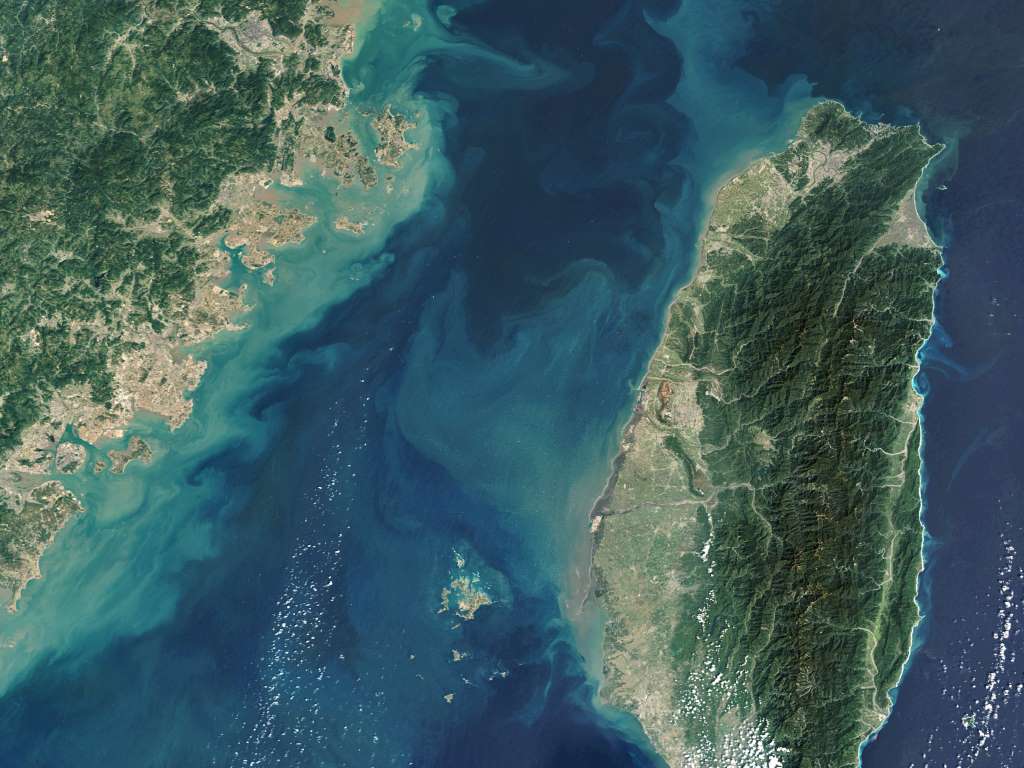
The Washington Post reports, "China on Thursday said it has complained to France after a French warship entered Chinese territorial waters while passing through the Taiwan Strait this month. In a related development, Chinese Vice Premier Hu Chunhua blamed British activity in the South China Sea for a downturn in relations in comments at the start of a meeting with British treasury chief Philip Hammond. The complaint and Hu's comments appear to illustrate how China is now willing to permit assertions of its territorial claims to affect ties with nations from outside the region. The April 7 incident in the Taiwan Strait marks a rare case of military friction between the two countries, which have held joint search and rescue exercises before. Ren said the navy dispatched ships to identify, warn and escort the French ship and would remain 'highly alert to firmly safeguard China's sovereignty and security'."
- NPR reports, "Wang Wen proudly says that he has been to over 20 U.S. states. He flies between the U.S. and China every few months for his job as director of the Chongyang Institute for Financial Studies, a university think tank in Beijing. At least he did until a few weeks ago, when he received an email from the U.S. Embassy in Beijing. His 10-year U.S. business visa had been abruptly canceled with no explanation. He was told he could apply for a single-entry business visa instead, if he was able to list his last 15 years of travel history. 'It was too much personal information to American government, so I rejected having to apply again,' Wang tells NPR. Visas are the latest weapon in a growing rivalry between the U.S. and China. This year, the U.S. canceled visas for a number of prominent Chinese scholars with government links over concerns that such exchanges are conduits for peddling influence and for espionage."
- Reuters reports, "China aims to make the Belt and Road initiative sustainable and prevent debt risks, its finance minister said on Thursday, seeking to allay criticism that the infrastructure plan to boost trade and investment creates a heavy burden for some nations. The policy championed by Chinese President Xi Jinping has become mired in controversy, with some partner nations bemoaning the high cost of projects, though China has repeatedly said it is not seeking to trap anyone with debt. Western governments have tended to view it as a means to spread Chinese influence abroad, saddling poor countries with unsustainable debt. Finance minister Liu Kun, speaking at a forum to kick off a three-day Belt and Road summit in Beijing, said China will establish an analysis framework on debt sustainability for Belt and Road projects to 'prevent and resolve debt risks'."
- 2019-04-24 U.S. charges American engineer, Chinese businessman with stealing GE’s trade secrets
- 2019-04-23 China's Belt and Road Cracks Down on Corruption in Image Revamp
- 2019-04-22 Western AI researchers partnered with Chinese surveillance firm
- 2019-04-18 U.S. wins WTO ruling against China grain import quotas
- 2019-04-17 China says its first-quarter GDP grew by 6.4 percent, topping expectations
- 2019-04-16 State Department approves renewal of $500 million Taiwan military training program
- 2019-04-15 U.S. waters down demand China ax subsidies in push for trade deal
- 2019-04-14 A trade deal might help China's needed reforms
- 2019-04-12 As U.S. and China Near Trade Deal, Enforcement Is Key
- 2019-04-11 China Sweetens Its Cloud Offer in U.S. Trade Talks
- The Washington Post China says French ship entered its waters illegally
- NPR Visas Are The Newest Weapon In U.S.-China Rivalry
- Reuters China seeks to allay fears over Belt and Road debt risks
- The New York Times Who Owns Huawei? The Company Tried to Explain. It Got Complicated.
- CNBC Why China's rise may call for 'a new world order'
- The Washington Post China and Russia to hold joint navy drills next week
- Reuters Peru to sign MoU to join China's Belt and Road club in coming days: Chinese ambassador
- The Washington Post China faces debt fears ahead of construction forum
- Bloomberg Global Steel Market Is Put on Notice as Top China Mill Warns
- CNBC Markets unprepared for impact of 'massive' Chinese policy shift, economist warns
- Bloomberg Tesla Says China Output May Hit 2,000 a Week This Year
- Reuters China's bankers in uncharted waters as Shanghai launches U.S.-style tech board
- The Wall Street Journal China Has No Intention to Tighten Monetary Policy, PBOC Vice Gov Says
- The Economist Why you should never start a trade war with an autocracy
- The Atlantic The U.S. Can't Make Allies Take Sides Over China
- Bloomberg When Will the UN's Chief Speak Up for the Uighurs?
- The National Interest Big Trouble, Little Taiwan: Why Taipei Is Moving Toward a Confrontation
- The Washington Post If China wants to lead the global order, it will need more than the Belt and Road Initiative
- Bloomberg A Slimmer Belt and Road Is Even Scarier
